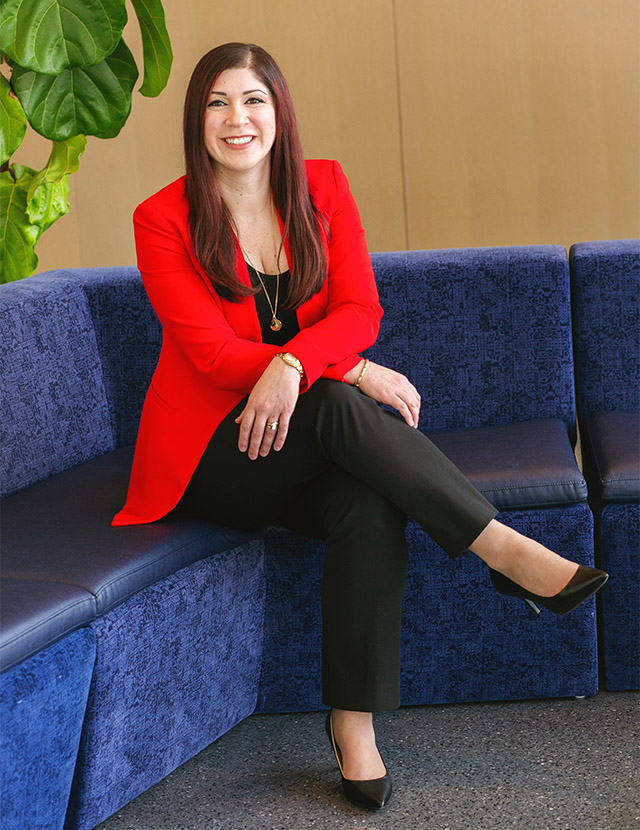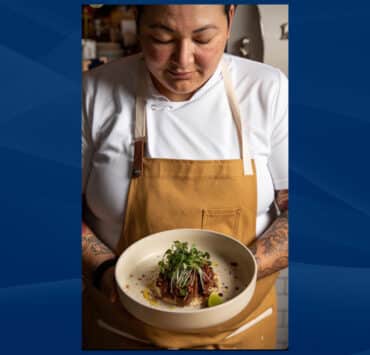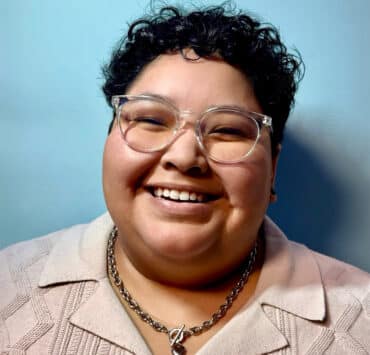|
Getting your Trinity Audio player ready...
|
On May 7, 1980, Carita Austin’s mother and her closest relatives fled Communist Cuba in the Mariel boatlift, a mass emigration of Cubans from the Mariel Harbor to the US. Coincidently, May 7 would play a significant role in Austin’s professional life, too.
“I graduated from law school thirty-one years to the day from when my family came to the US. Whether it was poetic or written in the stars, it still gives me chills. That boatlift set off a chain of events that led me to the blessings I have today,” says Austin, senior counsel for labor and employment at Cummins Inc.
As a youngster, Austin was regaled with the saga of her family’s escape to freedom, and she loves retelling it. Her grandfather, a fisherman, found himself a political prisoner of Fidel Castro’s regime. In an earlier wave of emigration, Austin’s great uncle fled Cuba and was living in Miami, where the US press made stories detailing the turmoil in Cuba unavoidable.
In a selfless act of courage, Austin’s great uncle loaded up a boat, sailed back to Cuba, and rescued Austin’s mother’s family. “Cuba basically said, ‘Fine, if you want to leave, go. But you have to take prisoners and anyone who is an undesirable,’” Austin says.
The family settled in Miami, and Austin was born to Cuban parents. Then, when Austin was four years old, her mother remarried and she moved to Linton, Indiana, a coal-mining town of about five thousand residents.
“It was a very small town where you can count the Latinas on one hand. While Linton was very different culturally from Miami, I’m grateful that it was an overall welcoming community to me and my mother,” Austin says. Her mom’s husband, a podiatrist, adopted Austin and played a major role in her life. “He was very important in promoting my education, because I didn’t have anyone else in my family who finished school,” she shares.

Austin gets emotional when speaking of the sacrifices her family made for her education, like living 1,200 miles from her closest family members. “We just did the long-distance thing,” Austin shares. “I would go spend the summers in Miami with my grandparents and cousins, and that’s how I stayed connected to my Cuban culture.”
That support continues today. “It’s the continued and unconditional support of my family, namely my husband, my three sons, my mother, and immediate family members that have allowed me to grow in my legal career,” Austin says.
Growing up, Austin gained an appreciation for her grandfather’s brush with Fidel Castro’s government. Couple that with living in a small coal-mining town with a large labor union presence, it was no surprise Austin amassed an interest in labor unions and government. “That shaped who I was and what I was interested in, like government and history,” Austin says.
As an undergraduate she focused on political science, labor, and social organizing. “I was always fascinated with how governments form, what values they have, and how that leads them to govern and create the laws they implement,” Austin says.
This interest positioned her toward law. After earning a Juris Doctor from Indiana University’s Mauer School of Law, Austin worked for the National Labor Relations Board (NLRB). “It was the perfect fit at that time, giving me an opportunity to work for the government and explore my interests in labor law. They were looking for someone who spoke Spanish, too,” Austin says.
After six years with the NLRB, she worked at Faegre Drinker Biddle & Reath LLP for five years, where she honed her labor and employment legal expertise.
“The importance of caring and diversity, equity, and inclusion—that is part of Cummins’ values. It’s not just words on a piece of paper. People live and breathe that philosophy in all of our day-to-day interactions. I am proud to work at Cummins and to be a Latina lawyer.”
Carita Austin
Austin eventually landed at Cummins in July of 2022, where she became responsible for labor and employment legal counseling for its distribution and engine business units in North America, including managing employment litigation and advising on legal issues involving labor unions. Knowing each employee carries a specific set of struggles, Austin’s business philosophy is “love and appreciation for your team and community”—and she’s always quick with praise.
As a first-generation Cuban American, Austin had few role models in education. Her adoptive father offered guidance, but he passed away when she was an undergraduate.
“When I got to law school, I knew very few who had gone through that experience firsthand. I initially felt out of place not knowing others with a similar background as me,” Austin says. However, the senior lawyer found community in law school with other diverse students, including Latinos.
The dearth of mentors ignited a passion in Austin to help law students, advising them to choose a path based on their interests and not someone else’s purview. “I will always make time to speak with a student. I want to make sure they have someone to talk to about school and their career.”
Austin also co-leads the law student externship program at Cummins and is the vice president of her alma mater’s Latino Alumni Board.
Despite her successes, Austin has had moments of doubt throughout her career, even questioning her decision to become a lawyer given pressures within the legal field to pursue a particular career path. However, working at Cummins has granted her confidence in bringing her authentic self to the job.
“The corporate culture at Cummins aligns with my personal values; the importance of caring and diversity, equity, and inclusion—that is part of Cummins’ values,” Austin expresses. “It’s not just words on a piece of paper. People live and breathe that philosophy in all of our day-to-day interactions. I am proud to work at Cummins and to be a Latina lawyer.”

